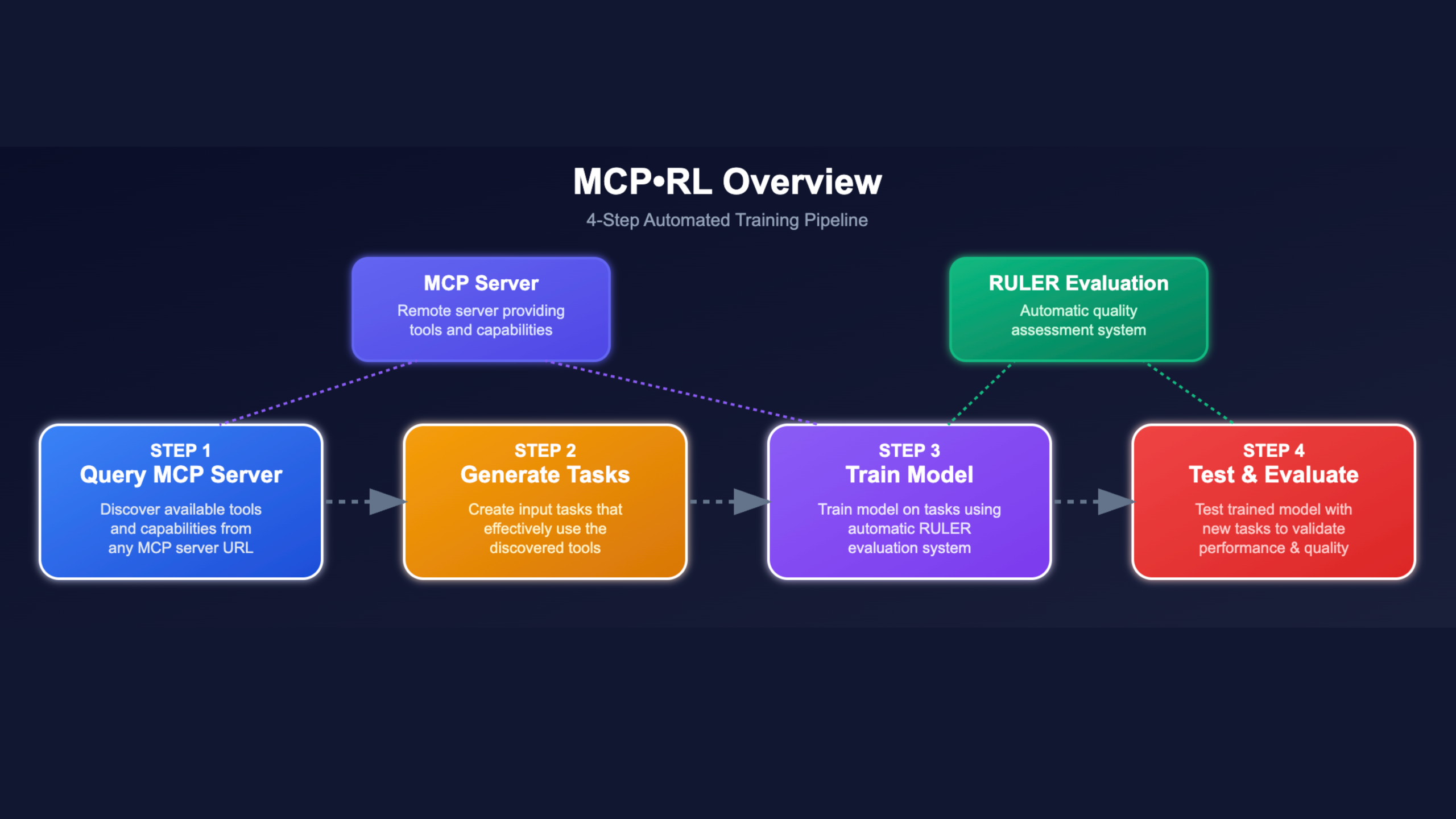
Revolutionizing AI: Automated Mastery of LLM Agents with MCP-RL and ART
As artificial intelligence continues to evolve, empowering large language models (LLMs) to seamlessly interact with dynamic real-world environments marks a significant frontier in AI engineering. The introduction of the Model Context Protocol (MCP) specification presents a standardized gateway through which LLMs can engage with various external systems—including APIs, file systems, databases, applications, and tools—eliminating the need for complex custom code or prompt manipulations.
Understanding MCP-RL
MCP-RL is a groundbreaking meta-training protocol designed to enable LLM agents to learn via reinforcement learning. This innovative approach allows agents to specialize and self-optimize for any MCP service with minimal human intervention, no labeled data requirements, and state-of-the-art reliability.
The Role of ART
The Agent Reinforcement Trainer (ART) library complements MCP-RL by facilitating the programming of LLMs to execute multi-step tasks with robust reasoning capabilities. This combination represents a paradigm shift in the integration and functionality of LLMs, making them more adaptable and efficient in a variety of contexts.
Technical Insights
The implementation of MCP-RL and ART involves intricate technical processes that optimize LLM performance. This includes a thorough code walkthrough that elucidates how these systems work together to enhance the capabilities of LLM agents.
Real-World Applications
The potential impact of these advancements is profound. By enabling LLMs to operate effectively within diverse environments, industries can leverage these technologies to improve automation, enhance user interactions, and streamline operations.
Conclusion
In summary, the integration of MCP-RL and ART not only simplifies the interaction process for LLMs but also opens new avenues for their application across various sectors. As AI continues to mature, these innovations are set to play a crucial role in shaping the future of intelligent systems.
Rocket Commentary
The introduction of the Model Context Protocol (MCP) and the MCP-RL meta-training protocol heralds a pivotal moment for the integration of large language models with real-world applications. While this standardized approach promises to streamline interactions with external systems, we must remain vigilant about the ethical implications of automation and the potential for over-reliance on these technologies. The capability for LLMs to self-optimize with minimal human oversight raises questions about accountability and transparency in AI decision-making. As we embrace these advancements, it’s imperative that the industry prioritizes accessibility and ethical frameworks, ensuring that the transformative potential of AI is harnessed responsibly and inclusively for all users.
Read the Original Article
This summary was created from the original article. Click below to read the full story from the source.
Read Original Article